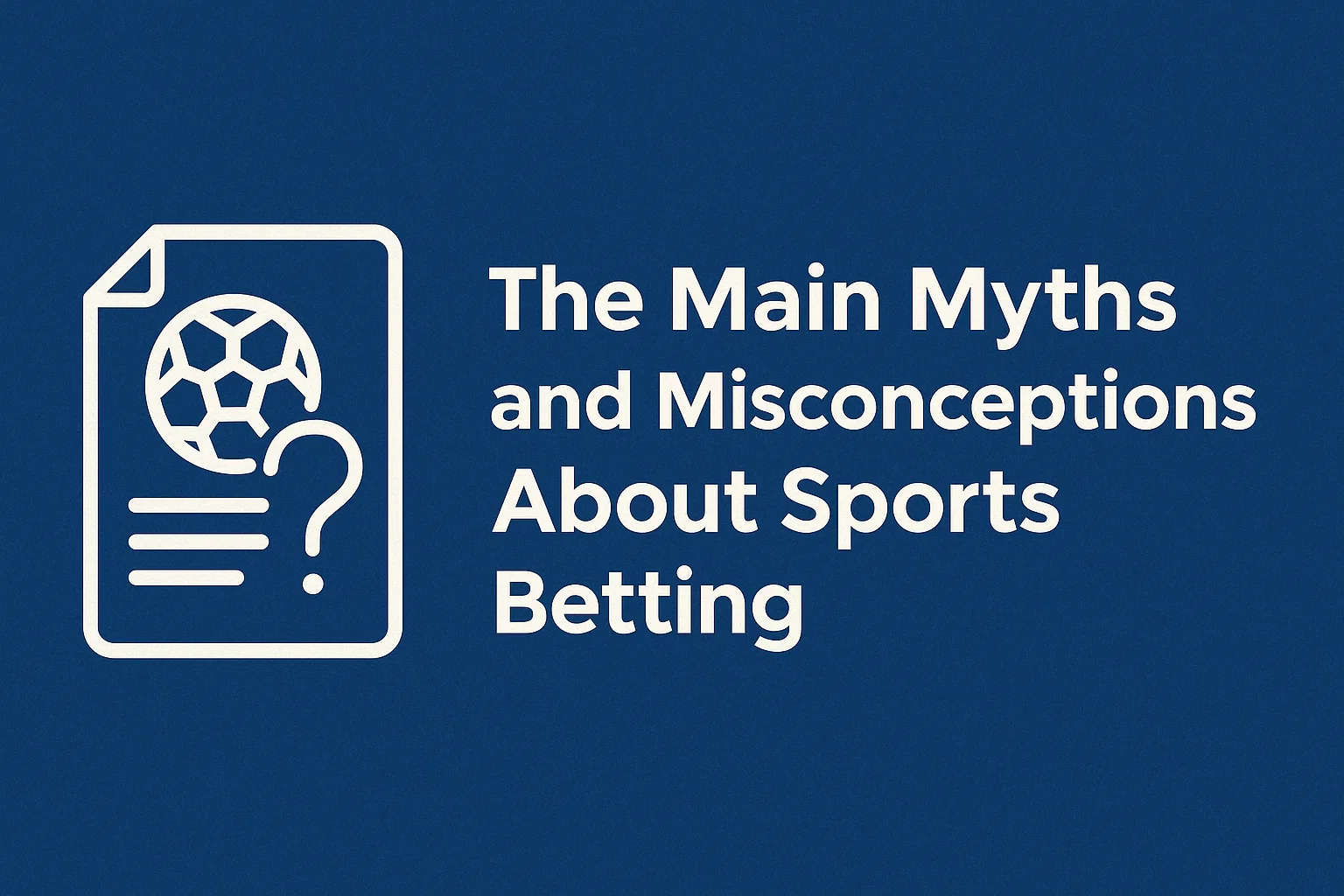
Stories about sports betting can be compared to old folk tales. It’s hard to judge them objectively, because they’re mixed with a bit of everything – some are true, some exaggerated, and some fall somewhere in between. Some people insist that betting is a shortcut to wealth and luxury. Others, on the contrary, believe it’s all one big scam where the only way to win is to be the bookmaker yourself. If you want a realistic look at the industry, resources like 22bet app review can also help separate facts from myths. Let’s take a sober, unbiased look at the most common stereotypes about betting and see if we can debunk them.
Winning on Bets Is Easy
Here it’s important to clarify one thing: a one-time win is indeed easy, and you don’t need to do much for it. You can put your whole salary on Barcelona against Malaga at odds of 1.1, and congratulations – you’ve won. But such a victory in the context of sports betting means nothing. It’s a random success, a coincidence – nothing more.
To understand why betting is not as simple as it seems, consider a few points:
- Short-term wins don’t guarantee profit in the long run.
- Probability theory and math play a bigger role than emotions or gut feelings.
- Discipline and bankroll management matter more than picking a favorite.
When we talk about winning in betting, we mean long-term profit – a positive balance over hundreds of wagers and months of play. Only after a statistically significant number of bets can you draw real conclusions about your success.
If you keep placing your salary on Barcelona at odds of 1.1, after a thousand such “safe bets” you’ll likely end up not on a tropical island, but in line at a pawn shop or the bank for a loan.
Betting is hard work – in fact, it can be more exhausting than a factory job, and much tougher on your nerves. If it were really as easy as casual observers think, everyone would already be making a living from it online. The betting industry is built on probability theory and mathematics. Without understanding these disciplines, you cannot consistently make money, no matter how much you want to. One-off wins are not earnings; they’re just part of the game. Winning is easy, making a living is hard.
Knowing Sports Means Knowing Betting. Just Bet on the Favorite
Sports betting is directly tied to probability. To be profitable long-term, you need to estimate probabilities – ideally, better than the bookmaker. Do you think you can do that with just a notepad and a newspaper when your opponent has software worth tens of thousands, capable of building complex mathematical models?
Take Barcelona again. You know they’re stronger than Malaga, so you bet on their victory without thinking about the odds. But the bookmaker has calculated those odds based on dozens of factors. You only relied on your gut feeling. Over time, this approach will put you in the red.
Bookmakers often intentionally lower odds on clear favorites, because casual bettors love to back them anyway. This way, the betting shop balances its money flows. Yesterday the odds might have been higher, but today they’re cut. And while betting on a favorite at 1.12 may seem safe, in reality it’s rarely profitable in the long run.
The truth is: understanding sports is useful, but it’s not enough. Financial discipline, analytical thinking, and control over emotions are far more important. You can know everything about football and still lose money. But if you master betting as a craft, then your sports knowledge becomes a valuable tool.
Teams Play “for the Bookmakers”
When Bayern suddenly loses at home to a mid-table team, or when a last-minute penalty ruins your accumulator, it’s common to hear angry bettors claim that teams are “playing for the bookies.” After all, many clubs even have betting companies as sponsors.
But this myth collapses under simple logic. Bookmakers don’t need to manipulate matches. Their business model is already extremely profitable and completely legal. Professional betting companies make money on turnover, taking a percentage of the massive sums flowing through their platforms. Recreational bookies cut out consistent winners and keep the losing majority.
It’s much more profitable for a bookmaker to get new clients through sponsorship and advertising than to risk its reputation by “fixing” games. Teams don’t hand matches to betting companies; they promote them as sponsors. And the money still ends up in the bookmaker’s pocket in a fully legitimate way.
You Can’t Win at Betting
This is perhaps the biggest myth of all. Betting is what’s called an advantage game – in other words, it’s possible to achieve positive expected value. Unlike casino games or slot machines, where the math always favors the house, in betting a player can sometimes estimate probabilities more accurately than the bookmaker.
That’s why many accounts in recreational bookmakers get limited or closed. If consistent winners posed no risk, there would be no need for such drastic measures.
Of course, turning betting into a steady source of income is difficult. It requires the same effort as being a professional in any field – whether engineering, business, or even manual work. Once you accept this reality and decide it’s worth the grind, then the path to serious betting begins.
The Wheel of Fortune
You may have noticed we haven’t talked about luck yet. That’s because luck plays a much smaller role than most people think. Sure, you can lose ten or twenty bets in a row, or win just as many. But over hundreds or thousands of wagers, luck evens out.
In the long run, what matters is not fortune, but your actual skill as a bettor. A losing player may brag about a short winning streak, while a true professional will still be profitable after thousands of bets. Where luck fades, your discipline, analysis, and strategy remain.